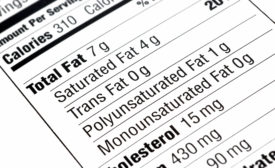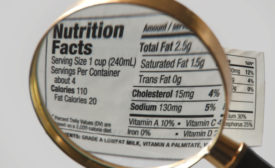Home » labeling trends
Articles Tagged with ''labeling trends''
How digitization, modernization cure disorganized labeling
A modern, centralized label management system is the key to streamlining supply chains and preventing fraud and mistakes.
January 14, 2020
Study: Sales of smart labels to ascend thanks to e-commerce, connected packaging
Use of connected packaging solutions such as smart labels enables end users to gain access to all traceable information across the supply chain.
November 5, 2019
Study reveals most consumers think food labels are misleading
This study found that 33% consider transparency from a brand as an extremely important factor when purchasing food products.
November 4, 2019
How blockchain helps companies meet new labeling standards
Blockchain, in particular, is giving wary food and beverage companies something to be excited about.
June 4, 2019
Survey finds most Americans are concerned about the safety of food
According to the survey, Americans trust claims tested and certified by independent organizations more than claims made by product manufacturers and brands.
May 16, 2019
Survey reveals which loosely-regulated marketing claims influence consumer purchase behavior
More than half of shoppers (51%) were also swayed by "no preservatives," particularly older generations.
March 13, 2019
Study reveals problems with fish mislabeling in Canada
The findings reveal that mislabeling happens before fish are imported into Canada, as well as throughout the supply chain.
February 11, 2019
Study reveals U.S. consumers seek clarity from retailers on food labeling
The researchrevealed 76% of U.S. consumers have unintentionally consumed food restricted from their diet.
January 16, 2019
Survey: 87% of products now use two date labels
New data proves the importance of clear, concise date labels.
December 18, 2018
Elevate your expertise in refrigerated and frozen foods with unparalleled insights and connections.
Get the latest industry updates tailored your way.
JOIN TODAY!Copyright ©2025. All Rights Reserved BNP Media.
Design, CMS, Hosting & Web Development :: ePublishing






